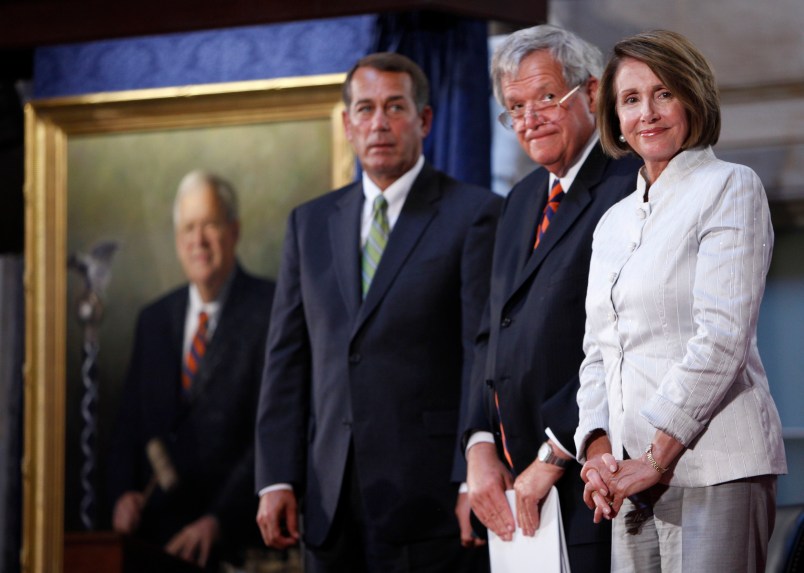House Democrats are resorting to a last-ditch option aimed at forcing Republican leaders to hold a vote on immigration reform, as prospects for an overhaul fade in the chamber.
On Wednesday, Democratic leaders will put forth a “discharge petition” — a tool that would let them bypass Speaker John Boehner (R-OH) and bring up a bill if they get 218 signatories, according to a senior Democratic aide.
The bill they’re pushing for, which mirrors the Senate-passed overhaul, has 200 cosponsors and 3 Republicans. They’ll call it the #DemandAVote Petition. Like all other Democratic-led discharge petitions in recent years, the effort is unlikely to succeed because GOP members don’t want to buck their leadership even if they support the underlying bill.
Democrats have been floating the idea for weeks, but they’ve held off on formally offering the petition for immigration, in order to give GOP leaders the time and space to craft a way forward. But Republicans have increasingly signaled they won’t act, so the discharge petition is an attempt to elevate the pressure and keep the heat on them.
“We’ll never get to 218 on the discharge petition,” Pelosi admitted on Sirius XM radio early in March. “Because the Republicans generally won’t sign.”
Michael Steel, a spokesman for Boehner, cheekily responded on Monday, “I can’t say it any better than the distinguished gentlelady from the Great State of California.”
Asked about Pelosi’s remark, a House Democratic aide said, “She’s acknowledging that it’s unlikely enough Republicans will disobey their leadership, but it’s obviously a way to increase the pressure ten fold on House Republicans and in turn pressure their leadership to move on this bill or another bill.”
It is an uphill battle. During the shutdown last fall, not a single House Republican signed the Democrats’ discharge petition to re-open the government, even though a number of them were openly pushing for the same bill. The last time a discharge petition succeeded was in 2002, under Speaker Dennis Hastert (R-IL), forcing a vote on the McCain-Feingold campaign finance legislation.
This article has been updated to include a late comment from Boehner’s office.






